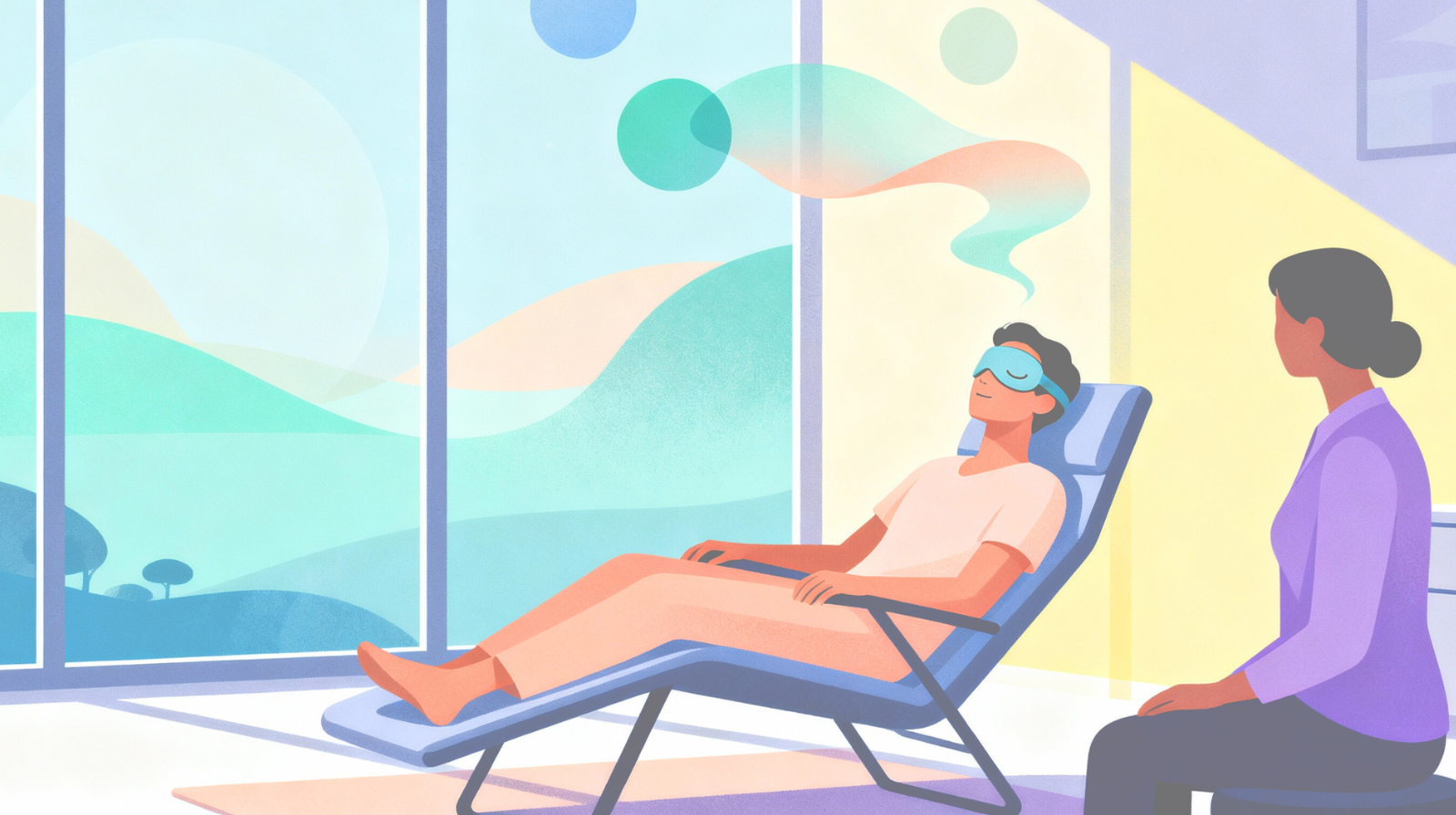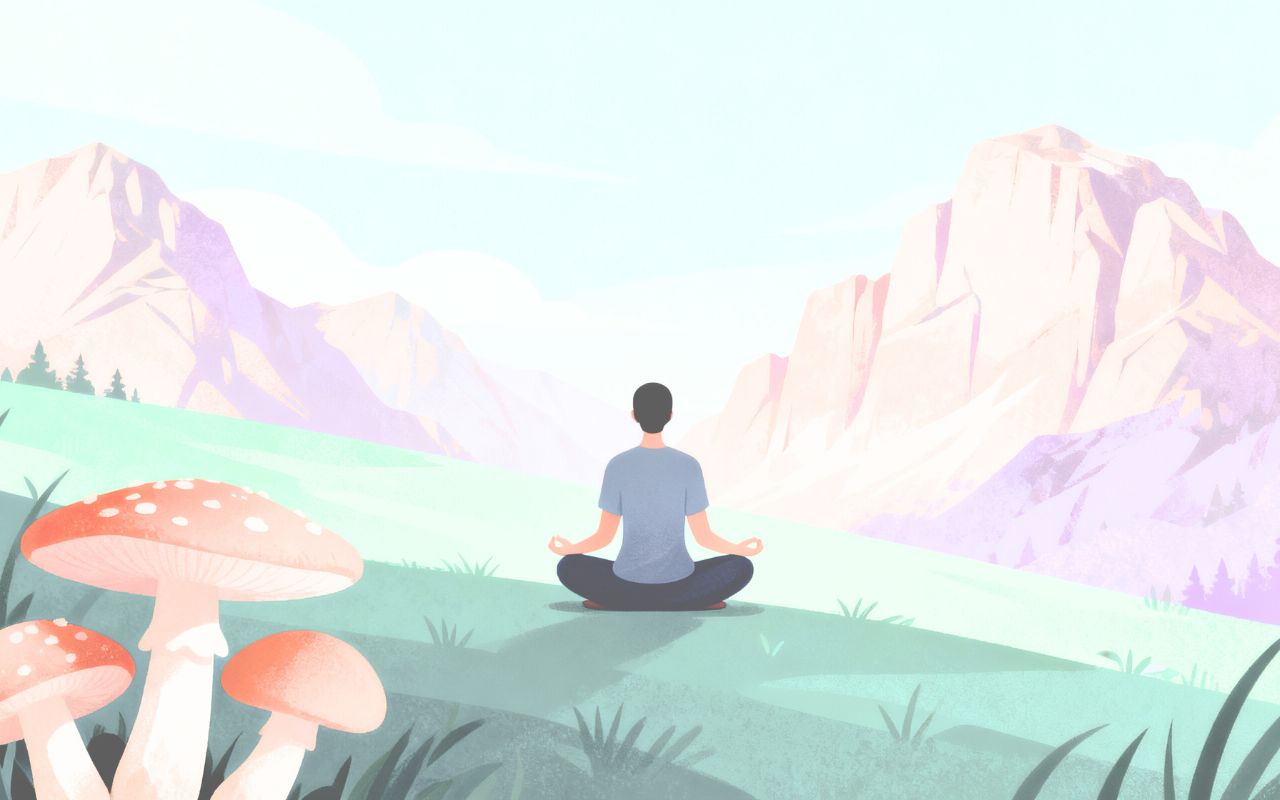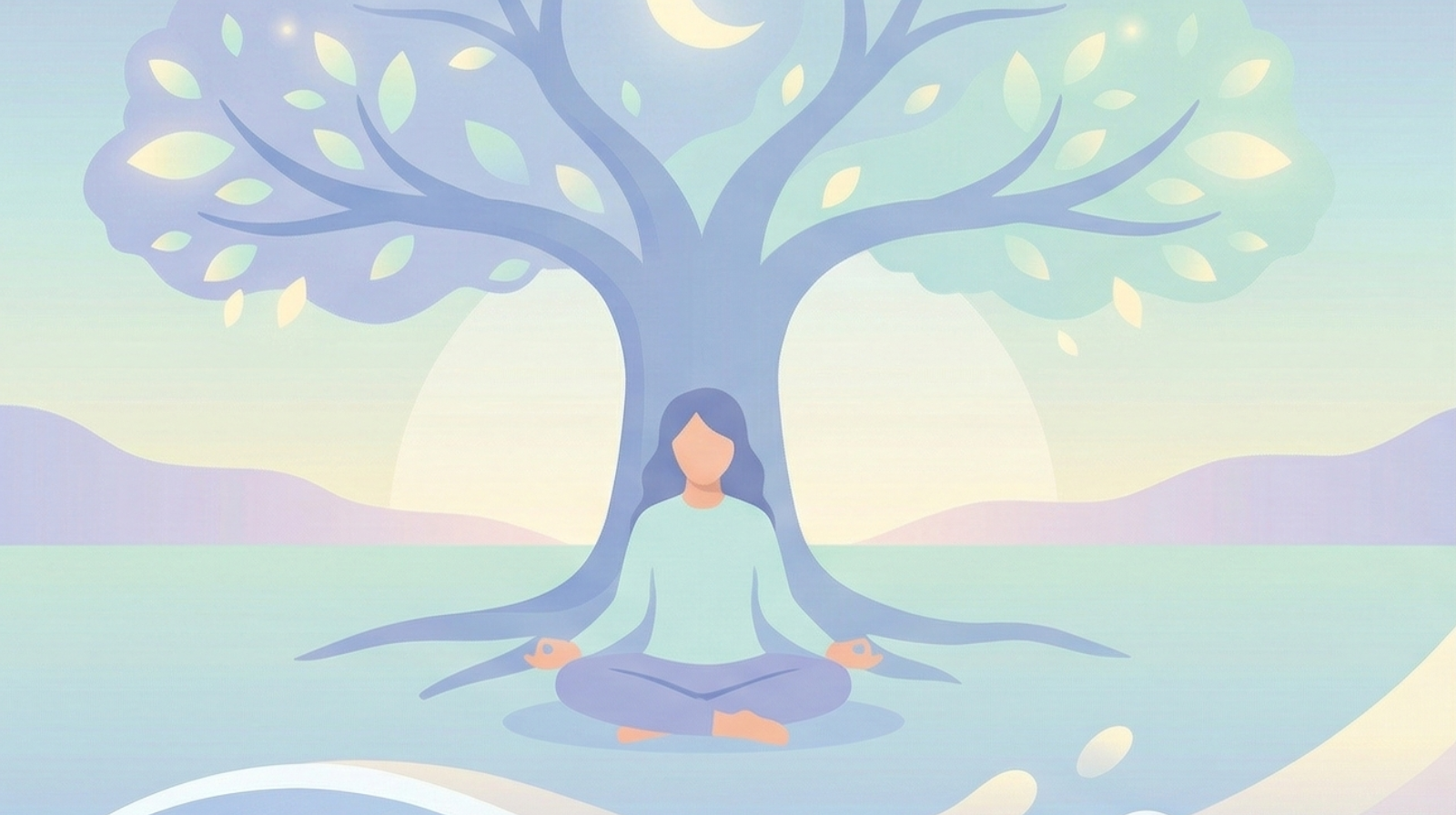
The Best Documentaries About Psychedelics
In recent years, a growing number of films and documentaries about the use and potential applications for psychedelics have been released. These films range in subject, spanning from deep-dives into the latest scientific research and medical trials to documentary series with rare interviews that highlight the personal stories of those who have profoundly changed from their experiences with psychedelics.
As with any subject, watching documentaries about psychedelics can be both educational and inspirational—and each film we’ve highlighted here raises fundamental questions about how, when, and why people around the world have turned to psychedelics in their personal and professional lives. These narratives can be easy introductions to those seeking more information about psychedelics, as well as deeply insightful and even spiritual reflections into people’s transformational journeys with psilocybin and other compounds. Below, find a mix of documentary titles to expand your understanding of psychedelics and where much of the groundbreaking scientific research into their usage is headed.
Finding the Right Psychedelic Documentary
Documentaries can serve a number of purposes, including being a way to as a key area of content that can inform and educate the general public about the five powerful psychedelic substances, including LSD, psilocybin, MDA, DMT, mescaline, and MDMA. Through films’ cinematography, rare interviews, and the exclusive access that filmmakers can gain with leading voices in the psychedelic field, viewers have an accessible slew of resources at their fingertips in which to better understand subjects including psychedelics and the US legal system, first person accounts of self discovery, and historical looks at the ancient wisdom traditions that have built the foundation for much of the growth and interest that we see today.
Our Curated List of Psychedelic Documentaries
Psychedelic drugs are a rich area to explore. Here, find a curated list of documentaries for your next remarkable film to watch on groundbreaking psychedelic research:
Descending the Mountain
If you’re interested in learning more about magic mushrooms, their mystical revelations, and other related meditations on the natural world, “Descending the Mountain” is a film that reveals if and how, when used together, psilocybin and meditation have mind-opening potential. This story highlights the work of the psychiatrist Franz Collenweider and Zen master Vanja Palmers who traveled to Mount Rifi in Switzerland to launch a ground-breaking scientific research project.
One major question anchors the content of this film: What happens when you administer psilocybin to experienced zen meditators? To answer this, Collenweider and Palmers carry out a double-blind experiment to examine the nature of consciousness. The experiment worked like this: A group of Zen meditators, none of whom had ever used psychedelic drugs before, are given a dose of psilocybin on the final day of a 5-day retreat. While half the group received a placebo dose, the others are sent on a psychedelic journey.
“Descending the Mountain” takes viewers on a journey of spiritual awakening, bringing eastern philosophy and the natural world into conversation about the power and potential use of psychoactive substances. Over the course of this documentary, this film uses features such as animation, sound, and A.I. to create strong visual representations of the transcendence experience that many of the Zen masters experienced in finding oneness with nature.
This documentary is a strong example of where current research backing the modern psychedelic renaissance is headed. With surprising visuals, a mesmerizing soundtrack, and intentional graphics, “Descending the Mountain” leaves viewers feeling as though they, too, are surrounded by the beauty and expanse of the Swiss mountains, opening their eyes and sense to the power of psychedelic experiences.
Neurons to Nirvana
In this 2013 documentary, the Canadian filmmaker Oliver Hockenhull examines the therapeutic benefits of psychedelics. Hockenhull’s documentary takes an in-depth look into the psychedelic renaissance in light of current scientific research, as well as growing medical and spiritual knowledge. “Neurons to Nirvana” examines both the history and future of scientific research into five powerful psychedelic substances: LSD, psilocybin, ayahuasca, MDMA, and cannabis.
Building on much of early research conducted by the Swiss chemist Albert Hofmann, a close friend of Amanda Feilding, this documentary paints an absorbing portrait of different psychedelics. Hockenhull’s team interviews scientists and experts from across the field of classic psychedelics to learn about the medical and spiritual potential of these drugs.
What makes “Neurons to Nirvana” a particularly noteworthy documentary is the intentional and gentle insight that it provides to viewers. The filmmakers are careful in the approach they take in their investigation into the state and findings of psychedelic research, stressing the importance of educating the public about these psychoactive substances and their current status in the legal system. Especially for an audience that is interested in parsing through much of the disinformation that has been spread about both psychedelic research as well as the use of psychoactive drugs, this film’s educational narrative is particularly informative.
How to Change Your Mind
This Michael Pollan documentary, which shares the name of his bestselling 2018 book “How to Change Your Mind: What the New Science of Psychedelics Teaches us about Consciousness, Dying, Addiction, Depression, and Transcendence,” is one of the more popular and well-known films on psychedelic drugs. When this book was published, Michael Pollan made great strides in introducing a wide audience to the life-changing experiences of magic mushrooms.
Since its release, Michael Pollan has become a leading global global and leading advocate for expanding research into psychedelic drugs, including their role as a tool to address mental illness and clinical depression, and has become somewhat of a well loved psychedelic pioneer in his own right. In the documentary “How to Change Your Mind,” Pollan has partnered with Netflix to adapt his book into a four-part short documentary series.
One of the many goals of this documentary project was to highlight the progress that researchers are making to better understand the alleviating connection between psilocybin and clinical depression. One of the four documentary episodes in “How to Change Your Mind” features the psychedelic experience of a young man struggling with mental illness. Searching for answers, this individual seeks out and experience with psilocybin—and quickly discovers that he is able to let go of his paralyzing past dealing with this obsessive-compulsive disorder.
Hamilton’s Pharmacopeia
This multi-season short documentary series—written, directed, and produced by the journalist and scientific researcher Hamilton Morris—explores the history, chemistry, and how the use of a psychoactive ingredient is linked to a range of social impacts. To explore these topics, Morris features personal stories related to his own use of psychedelics and magic medicine to study their uses.
In each episode of “Hamilton’s Pharmacopeia,” Morris takes viewers along on his global quest, exploring psychoactive drugs and the various ways that people around the world seek relief through their effects. Episodes include Morris’s visit to a lab where he interviews a chemist attempting to synthesize unique psychedelics while in another he travels to India where he looks at the rituals and ancient, traditional use of opium. His work, which spans from a look at an interesting medical trial to the spiritual or non ordinary states that individuals experience with psychedelics, maintains an educational and exploratory storytelling lens.
Have a Good Trip
This 2020 documentary film was written by Emmy-winning producer, writer, and director Donick Cary and features the American actor Nick Offerman. The main premise of this series centers on celebrities sharing their personal anecdotes about past hallucinogenic drug use. The film also notably includes some of the final on-screen appearances of celebrities including Fred Willard, Anthony Bourdain, and Carrie Fisher. In total, the film features 34 interviews with singers, actors—like Sting and Ben Stiller—as well as other high profile characters.
While the documentary film uses striking visual, catchy music, and what one critic called “uproarious re-enactments,” the celebrity vignettes are not just eye-catching or trippy for the sake of wanting to draw attention. “In my experience,” one writer for Vox writes, the stories in the film are “a very real representation of what anyone who has done psychedelics will go through: the good, the bad, the glorious and the ugly. Because it’s only the ones who have experienced the bewitchment of psychedelics who can truly understand that it’s not what happened that’s enticing. It’s how it made you feel.”
Magic Medicine
In this documentary, the filmmaker Monty Wates had exclusive access to the first ever medical trial centered on the use of psilocybin and its effects for those suffering from depression. Here, Wates follows three of the volunteers from this clinical trial as well as the staff behind the trial’s operations. “In a way [the filmmaker Monty Wates] was like a soundboard,” John, one of the volunteers in the trial, said of this documentary. “His questions helped bring a deeper reflection. This made the filming both positive and difficult. On reflection, it was like the trial. I’m glad I did it but it wasn’t a barrel of laughs.”
“Magic Medicine” takes an exploratory angle, diving deep into the stories of these three individuals who, for years, have struggled to address severe trauma, mental and physical pain as well as end of life anxiety. The film specifically focuses on how, for some people, psychedelics can dislodge emotions and repressed memories that make a path towards strong self-understanding and awareness possible.
Fantastic Fungi
In this film, the actress Brie Larson narrates a descriptive time-lapse journey related to the magical and mysterious wonders of fungi and the medicinal world. Taking an extremely broad look at environmental history, “Fantastic Fungi” looks at how fungi have demonstrated powers related to human and natural well-being over Earth’s 3.5 billion year history. There are over 1.5 million species of fungi and nearly 20,000 of those produce some kind of mushroom. This film makes the argument that without these organisms, there would be a buildup of plant matter, eventually choking the earth’s natural cycles.
Tracing this environmental history, “Fantastic Fungi” also focuses on how, some 650 million years ago, fungi divided between two branches: one that led further into fungi development—including mycelium—and the other to animals. This documentary ultimately reveals an exploration of the communication network of mycelium taking place below our very feet, all of which, the documentary argues, is related to the inner workings of the planet’s ecosystems, answers to repairing human health and well being, and clues towards ways in which we can each grow our symbiotic relationship with the natural world.
Go Beyond Psychedelic Documentaries with Beckley Retreats
Documentary films are undoubtedly useful resources to dive into the world of psychedelics, regardless of whether you have questions about ongoing scientific research or are interested in the storied, ancient history of these substances across the world. Documentaries are also incredible resources to hear from real people—for, often, a personal retelling and explanation of one’s experiences can be the most compelling story. But even beyond what you may hear and see in these films, Beckley Retreats offers the opportunity to go beyond the screen.
Beckley Retreats is the world’s only psychedelic retreat program backed by 25 years of scientific research from The Beckley Foundation and an ecosystem of expertise. Retreats at Beckley are held in locations where psilocybin mushrooms/truffles are legal in spaces that are deep in nature remote, safe, and secure. A particular emphasis is placed on the natural environment around these retreat settings to promote a sense of relaxation and reconnectionsafety.—as well as the opportunity to reconnect with the natural world—for participants. Follow this link to You can also hear from previous retreat participants as well as from our team of world-class facilitators about their experiences with Beckley Retreats.
To learn more, find our listing on BookRetreats.com to explore options on finding retreats with to put these documentaries into action.


